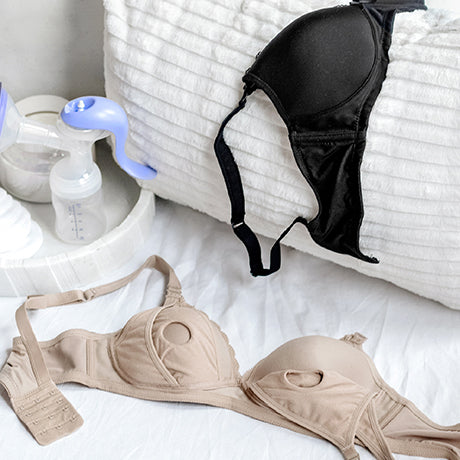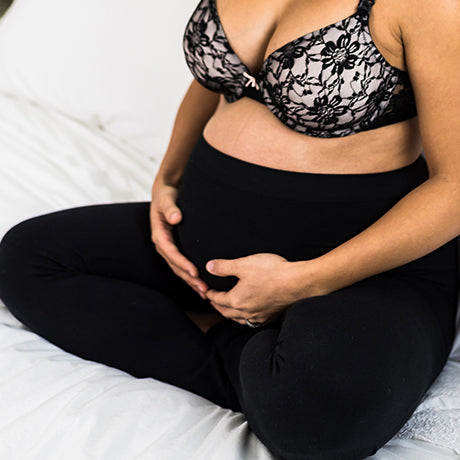Breast Cancer Awareness: Breastfeeding and Breast Cancer
As we all know, October is breast cancer awareness month. This is an important topic because one in eight women in the U.S. develops breast cancer in her lifetime. Unfortunately this statistic proves that the disease will affect all of us at some point in our lives, whether it’s personal, through a friend, family member or colleague. Although there is not a cure, breast cancer is treatable, and millions of women are now survivors. Part of breast cancer awareness is not only celebrating victories, but embracing the small ways we can decrease our likelihood of cancer. Together we can educate women on signs, risks and precautions, and share important information on lifestyle factors, such as the connection between breastfeeding and breast cancer risk reduction.
The war against cancer is ongoing, but raising awareness about breast cancer in October and year round are important ways to inform and protect women. Like most cancers, early diagnosis is a key factor successfully treating breast cancer. That means knowing the symptoms and risk factors, getting regular screenings and making lifestyle choices to support breast health. The American Cancer Society is an excellent resource and we’re boiling down some of their most important messages:
Symptoms of Breast Cancer and Regular Precautions
Every woman’s body is different, including her breasts. Know what is normal for your breasts is the best way to identify when something is not normal. Take note of normal hormonal changes throughout the month, as opposed to sudden changes that may indicate something more serious.
Most women know that a lump or knot in the breast or underarm is cause for a visit to a physician, but there are many other signs of breast cancer. Swelling, redness, discharge, dimpling or any type of rash on the breast or nipple can be a symptom. Often breast cancer causes the breast to change size or presents as a persistent pain in one spot.
Every woman, from teenagers to seniors, should perform a regular self breast exam. Your gynecologist should also do a manual breast exam at your yearly checkup. Most physicians recommend mammograms beginning at age 40, but depending on your personal health and familial risk factors, they may not be necessary every year. Other screenings such as MRIs or ultrasounds may be required depending on your risk factors as well.
Risk Factors of Breast Cancer
There are several uncontrollable and lifestyle-related risk factors related to breast cancer. It is important to know if you are at an elevated risk so you and your physician can be vigilant of any changes to your health.
Breast cancer is more common in women over 55 and more common in white women than in African-American, Asian, Hispanic and Native-American women. Heredity plays a role in two ways: the gene mutation can be passed down from a parent and having a family history of the disease also increases a woman’s risk. Additionally, women with dense breast tissue and benign breast conditions may be more likely to develop breast cancer. It is also believed that women who have been exposed to more estrogen for longer periods of time are at an increased risk. That means women who started menstruating early and went through menopause late, or women who have had hormone therapy treatments may have a higher risk of cancer.
Lifestyle Factors of Breast Cancer: The Good and the Bad
 We do have some control of our risk of breast cancer, at least statistically speaking. First, the good news: Women who have children, especially before the age of 30, are less likely to get the disease. Breastfeeding and breast cancer also have a slight correlation. Some studies suggest that women who breastfeed a total of 1½ to 2 years may reduce their risk of breast cancer, possibly because she will have had less menstrual cycles in her lifetime.
We do have some control of our risk of breast cancer, at least statistically speaking. First, the good news: Women who have children, especially before the age of 30, are less likely to get the disease. Breastfeeding and breast cancer also have a slight correlation. Some studies suggest that women who breastfeed a total of 1½ to 2 years may reduce their risk of breast cancer, possibly because she will have had less menstrual cycles in her lifetime.
Much like many other health conditions, being physically fit, physically active and maintaining a healthy weight are important for our bodies to function properly. Excessive alcohol use and smoking have been linked to increased risk of breast cancer, as well as other types of cancers.
Join us in spreading breast cancer awareness by learning the signs, risks and precautions, and telling your friends and family. Together we can help women detect early and continue to improve the survival rate.
The post Breast Cancer Awareness: Breastfeeding and Breast Cancer appeared first on Leading Lady.






